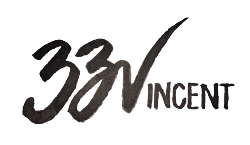How to Beat the Back to Work Blues
It’s Sunday night and there’s a gnawing, sinking feeling in your stomach. You try to focus on your favorite show or read just one more chapter of the book you’ve been carrying around all vacation, but you can’t concentrate.
You close your eyes to get some sleep but you’re frazzled, thoughts bubbling over like the boiling pot of coffee you’ll need to make yourself in the morning. Finally, you acknowledge what you’ve been dreading all day—you’ve got work tomorrow along with a case of “Them”.
Them? Whether you call it the “Sunday Scaries,” the “Back to Work Blues,” or just a “Holiday Hangover,” one thing stays the same–you struggle to ease back into work after time away, and you’re in need of some “Monday Motivation.”
Sadly, “Monday Motivation” usually comes in the form of a pithy back to work meme or inspirational quote, and a cup of coffee—good for a momentary distraction but not really helpful in the long run.
Luckily we’re here to help with real, science-based tips to help you beat those back to work blues!
Why We Get Anxiety About Going Back to Work After Vacation
First, it helps to acknowledge that nearly everyone has anxiety about going back to work - really, it’s not just you! In a 2020 study with 2,000 respondents, 88% of participants reported feeling anxious about heading back to work. But Why?
Changes to routines are known to cause anxiety. When you’ve been away from work for a long period of time, going back to work is effectively a break in your routine. Just like it took a few days to stop thinking about work when your vacation started, it will take a few days to get back into the swing of things too.
Many people also experience acute bouts of re-entry anxiety, —caused by leaving a comfort zone—and returning to somewhere else we’ve been before. This effect has particularly been in the news lately as people return to the office after COVID. Uncertainty and anticipation have also been shown to spike our stress levels too. Have you ever noticed how when you’re out on holiday and focused on decompressing, even just a reminder that you’ll have to go back to work gives you anxiety?
Even if you love your job, all of these factors combined are enough to give anyone anxiety! The good news is, there are plenty of ways to make that adjustment as easy as possible!
How to Go Back to Work After Time Off
1. Plan Ahead for Your Time Out of Office
Preparing for your time away from work before you leave for the weekend — or especially vacation — will make a huge difference for when you return. This method is so fantastic at easing the transition back to work we even created an entire guide on the planning process here. Of course, if you’re reading this article it won't help you much right now—but be sure to bookmark it for the future because it works!
2. Organize Your Tasks When You Return
Even if you’ve had the luxury of planning ahead for your return, take your first moments back in office to organize yourself to ease into the transition - blocking the entire morning of your return to situate yourself can make a huge difference.
Make a list of your upcoming tasks to reorient yourself to where you left off. We’ve found the Eisenhower Matrix is an easy and quick tool for this - grab the template here. After you’ve made your list, you can start preparing a proper back to work plan.
3. Create a Plan According to Your Stress & Energy Levels
Start by picking two or three important tasks to complete each day. Try to choose a balance of easy and difficult tasks so you don’t feel overwhelmed and blindsided on your first days back to work. This will enable you to either knock out some simple to-dosor pare down larger tasks depending on how you’re feeling. You can find some recommendations for breaking down tasks HERE and use this app to help you focus for shorter periods of time.
4. Take Some Time to Evaluate
While you’re planning your return, take a moment to evaluate your needs, energy levels, and best practices for work. Schedule tasks accordingly. Acknowledge that you may need a day or two or a week before you’re ready to take on any external meetings. Perhaps the first week back is time for deep work and internal strategic planning. Here’s a guide to deep work based on scientist Cal Newport’s famous book.
5. Be Sure to Get Enough Rest
Focus on getting quality sleep the night before you return to work. Studies show that 7-9 hours of sleep for adults 18 - 64 can help reduce anxiety and replenish the body and mind. Not getting enough sleep is the number 1 productivity mistake! Quality sleep can make you wake up refreshed and ready to tackle not just your Monday but the whole week! For tips on how to develop better sleep hygiene, check out this resource.
6. Delegate What You Can
Hand off tasks that can be done by someone else. This is the chance to let your Executive Assistant flex their critical thinking skills and hone their deep work practice. Or you could give another direct report a chance to shine. Either way, the task gets done, it’s one less thing to worry about, and it’s a chance to help a team member grow! For tips on how to delegate effectively, check out this resource!
7. Eliminate The Clutter
Cross out or delay the tasks that aren’t really important. Simplifying your to-do list is a great best practice for normal operation too. Don’t sweat the small stuff!
But don’t just declutter your task list—consider your workspace with fresh eyes and see if there are any stressors–clutter, a stack of unorganized papers, stale chocolate chip cookies –you can get rid of. Perhaps it’s time for a cleansing and quick desk makeover. You’ll be surprised how much a tidy workspace will help you feel better.
8. Go Slowly and Take Breaks
Recognize that it’s okay to take things one day at a time, and be sure to take a few minutes every half hour to stretch your legs. Don’t be afraid to take a day, or even the whole week, to help yourself recalibrate. Perhaps the first day back could be a good opportunity to simply plan for the week. Keep your schedule light but effective and give yourself time to adjust back into the rhythms of work. Here are some scheduling tips to help boost your impact.
9. Connect With Your Colleagues
Talk to colleagues about difficulties easing back in. There are SO MANY benefits of having work friends, including experiencing lower rates of burnout and stress! Making friends at work can be challenging but not impossible. Check out your company’s employee resource groups and affinity spaces. Here are some strategies for remote workers. There’s bound to be someone who will want to watch Matrix 4 with you or listen to your first time parent horror stories.
10. Be Patient With Others
Remember that everyone expresses themselves and their needs differently. Some colleagues may feel disconnected with you if you’ve been gone for a while. Some will fall right into step with you once you return. Regardless, treat everyone with respect and understanding, and expect that they give the same to you! The cornerstone of healthy work relationships is empathy and communication, so here are some tips on building healthy work communication.
11. Plan a Relaxing Weekend
Plan an activity you enjoy for the weekend, whether it’s a get-together with friends or even just relaxing by yourself! The simple act of having something relaxing to look forward to will help you get through that first week. But do avoid overscheduling your weekend, since studies show this could make you feel more stressed.
12. Schedule More Time Off
You read that right—planning your next vacation or week-long holiday, just like planning a relaxing weekend, will give you something to look forward to and help break you out of that back to work funk. In 2019, about 55% of US workers did not use their allotted vacation time off. A whopping 768 million vacation days went unused! Don’t let that be you. Holidays are great for improving mental health—so be sure to enjoy yours!
13. Get an Executive Assistant!
If you’re still feeling overwhelmed after a week or so, you might just need a professional—and that’s where we come in. We’ve spent the better part of a decade helping business leaders streamline their time while boosting their impact, and we’d love to help you too. Our Executive Assistants are the best of the best — only 1-3% of those who apply are accepted to our program — and they’re waiting in the wings to help you truly elevate your work!
Just give us a shout and we’ll be ready with the support you need!
Want More Remote & Virtual Work Guides and Tips?
We have newsletters designed specifically for virtual Executive Assistants and Business Leaders! Sign up to receive our bi-weekly newsletters here and you’ll receive more science-backed productivity tips and tricks directly to your inbox.
33Vincent has many other resources to help you maximize your time and communication with your executive assistant.






